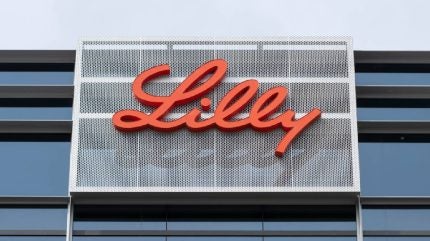
Eli Lilly and Company (Lilly) has received approval from the US Food and Drug Administration (FDA) for Inluriyo (imlunestrant 200mg tablets) to treat advanced or metastatic breast cancer (MBC).
Inluriyo is an oestrogen receptor (ER) antagonist administered orally and delivers continuous ER inhibition, including in cancers with mutations in the ESR1 gene.

Discover B2B Marketing That Performs
Combine business intelligence and editorial excellence to reach engaged professionals across 36 leading media platforms.
Its mechanism is beneficial for patients with ESR1 mutations, which can lead to overactivity of oestrogen receptors and subsequent cancer progression.
The medication is indicated for adults with oestrogen receptor-positive (ER+), human epidermal growth factor receptor 2-negative (HER2–), ESR1-mutated MBC.
The approval applies to patients whose disease has progressed following at least one line of endocrine therapy.
Lilly oncology executive vice-president and president Jacob Van Naarden stated: “This therapy reflects our commitment to developing treatments that improve outcomes for people with breast cancer and represents an important step toward advancing innovative, all-oral treatment approaches.

US Tariffs are shifting - will you react or anticipate?
Don’t let policy changes catch you off guard. Stay proactive with real-time data and expert analysis.
By GlobalData“We are deeply grateful to the patients, investigators, Lilly team members and clinical care teams who made this advancement possible. This therapy has the potential to make the treatment journey more manageable for those living with breast cancer.”
The FDA approval was based on results from the Phase III EMBER-3 trial, which involved 256 patients with ESR1-mutated metastatic breast cancer.
Inluriyo showed a 38% reduction in the risk of progression or death compared to endocrine therapy.
Patients who received the treatment showed a median progression-free survival of 5.5 months versus 3.8 months for those receiving fulvestrant or exemestane.
The trial reported that most adverse events associated with Inluriyo were of low grade, with common reactions including decreased haemoglobin, musculoskeletal pain and fatigue.
Inluriyo is currently under investigation in the EMBER-4 trial, which aims to enrol 8,000 participants with early breast cancer deemed at high risk of recurrence.
Lilly also plans to commercially launch Inluriyo in the US in autumn 2025.
The company previously announced plans to build an active pharmaceutical product (API) facility, worth $6.5bn, in the US state of Texas.




